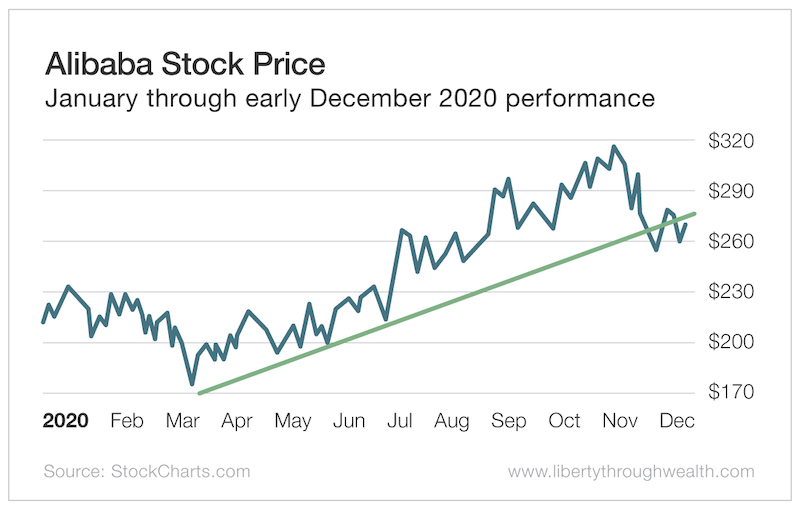Wednesday Wealth Recap
- The cryptocurrency debate rages on, even among the strategists at The Oxford Club. It’s easy to fall under crypto’s spell, but Alexander Green shares why the digital currency is more hype than substance.
- The unsettling similarities between tech giants and Big Tobacco can teach us an important lesson when it comes to long-term investments. Nicholas Vardy explains why addictive products make successful stocks and why one in particular could be a strong candidate for your “never sell” portfolio.
- Instead of merely worrying about the future of our environment, we should be investing in it. Engineering Strategist David Fessler explains why two large carbon capture pilot programs should be on every investor’s radar.
- The delta variant shows no sign of stopping as it rips across the United States. What does this mean for Americans and the economy? And, more importantly for investors, how should we play it? Our friend and founder of Manward Press, Andy Snyder, has the answers.
Note from Senior Managing Editor Christina Grieves: Today we’re featuring a great piece from Chief Income Strategist Marc Lichtenfeld. He’s sharing why technical analysis is one of the most important skills he’s learned as a financial analyst.
Marc recognizes it’s not always easy knowing when to buy or sell a stock, especially if you don’t have the right tools. That’s why he’s launching a brand-new, three-part virtual training: How to Trade Like a Champion. From August 9-11, Marc will walk you through his favorite strategies for using technical analysis to inform winning trades.
Take a moment to read what Marc has to say. Once you do, you’ll understand exactly why you do not want to miss this event. Simply click here to reserve your spot – completely free – and transform your trading.
The letters and numbers were flying past me as traders shouted at me to execute their orders.
How were these guys making sense out of the seemingly random price action coming across their screens?
I was a newly minted assistant on the trading desk, and my job was to watch the markets, execute trades on behalf of traders and alert them to any trends that I saw.
The first two tasks were no problem. But I had a tough time seeing how those moving prices on my screen could be interpreted and lead to a decision to buy or sell stock.
I’d like to tell you that after a lot of studying and hard work, I finally got it. But I’d be lying. A year later, I was as clueless as I was on my first morning.
And then one day, a trader showed up on the desk with a new data source. And when he hit “3” on the keyboard, the stock’s chart came up. He’d quickly toggle between a daily chart, an hourly chart and a five-minute chart.
I was enthralled. I peppered him with questions: “What does that mean? How do you know when to buy or sell?”
Without looking up from his charts, he snapped, “Go learn some technical analysis and then come back to me.”
I had no idea what he was talking about. There was no Google back then. So I spent that weekend at the library devouring everything I could on technical analysis – the study of stock charts (or charts of other financial instruments).
I enrolled in a class on technical analysis at a local university, and I was hooked.
All those random numbers I saw on my screens could be used to create a chart that would show patterns, trends and even price targets.
Importantly, I learned that those charts are visual representations of human emotion – greed and fear. And those emotions repeat in patterns and are somewhat predictable.
I became obsessed with improving my skills. I was fortunate that I had access to some of the most legendary technical analysts in the world. It was like discovering a love of baseball and speaking to Babe Ruth, Ted Williams and Ken Griffey Jr. every week.
At first I thought I’d found a crystal ball that would lead me to riches. But what these legends taught me – and what my hours and hours of study showed me – is that charts are not foolproof.
But they are very good at revealing patterns and helping traders find the points of maximum reward and minimum risk.
For example, here’s a chart of Alibaba Group Holding (NYSE: BABA).

You can see that, starting in late March of last year, the stock started to move higher. Let’s say that in June 2020, you were looking for a good entry point.
If you drew a straight line, called a trend line, connecting the lows of the stock, you’d see that it’d be best to buy the stock when it came down to that trend line because, in the past, it had bounced off that area of support.
(Support is a price level where investors and traders come in and buy the stock, “supporting” it.)
In late June, you could have bought the stock at $240 and eventually would have made money. But if you waited until the stock came back down to its trend line, you would have done even better…
You’d have bought it at around $210 and ridden it higher for months, as the stock didn’t break the trend line until November 2020.
More importantly, you’d have lowered your risk.
Here’s why…
When a stock breaks a trend line or other support, that is a sign that the psychology around the stock has changed.
For whatever reason, when the stock previously came down to the trend line, buyers jumped in. When it breaks the trend line, buyers no longer come to the rescue.
We don’t necessarily know if it’s because the company’s earnings are down, the CEO was arrested or a new competitor emerged – and, to be honest, we don’t care. We just know that the psychology of investors has changed and we need to think about getting out.
Let’s say that last October you were interested in Alibaba. You could have bought it at $310 and then watched it fall all the way to $250, taking a sizable loss.
If you waited for the stock to come back down to the trend line, you’d have bought it at $270. Then the stock did in fact break the trend line, signaling that the uptrend that had been in effect since March was over. That was a sell signal, and you’d have gotten out with a small loss instead of a large one.
This is just a very simple example. There are many, many ways to use technical analysis.
Using charts and technical analysis increases the probability and size of your profits while decreasing the probability and size of a loss.
If you’re interested in learning more about technical analysis, be sure you don’t miss my upcoming three-day training, How to Trade Like a Champion, August 9 through August 11.
This free virtual event will show you everything you need to know to get started with technical analysis.
Twenty-two years ago, I was told, “Go learn some technical analysis.” I’m still studying it every day. I can’t imagine making a trade without it.
Good investing,
Marc
